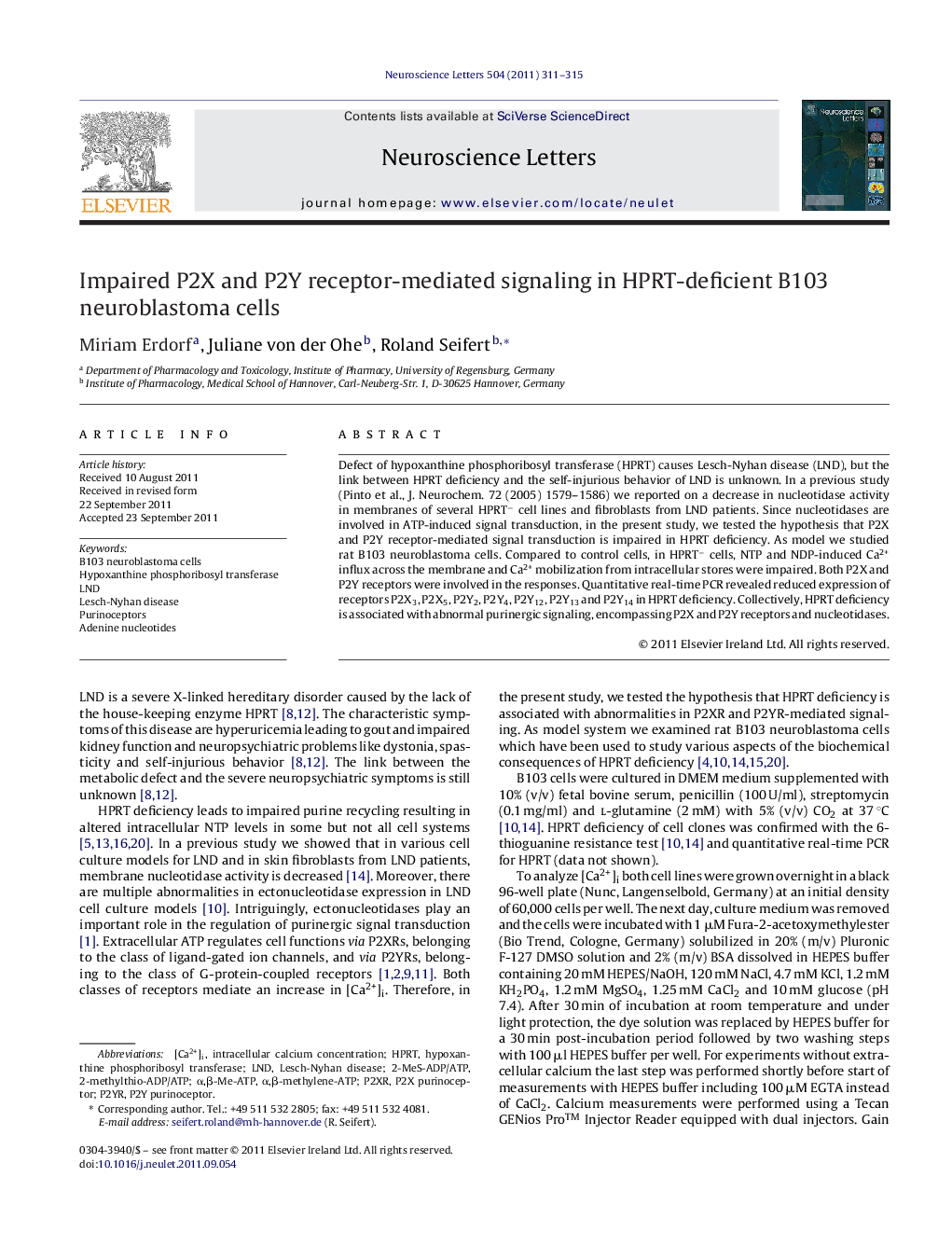| Article ID | Journal | Published Year | Pages | File Type |
|---|---|---|---|---|
| 4344982 | Neuroscience Letters | 2011 | 5 Pages |
Defect of hypoxanthine phosphoribosyl transferase (HPRT) causes Lesch-Nyhan disease (LND), but the link between HPRT deficiency and the self-injurious behavior of LND is unknown. In a previous study (Pinto et al., J. Neurochem. 72 (2005) 1579–1586) we reported on a decrease in nucleotidase activity in membranes of several HPRT− cell lines and fibroblasts from LND patients. Since nucleotidases are involved in ATP-induced signal transduction, in the present study, we tested the hypothesis that P2X and P2Y receptor-mediated signal transduction is impaired in HPRT deficiency. As model we studied rat B103 neuroblastoma cells. Compared to control cells, in HPRT− cells, NTP and NDP-induced Ca2+ influx across the membrane and Ca2+ mobilization from intracellular stores were impaired. Both P2X and P2Y receptors were involved in the responses. Quantitative real-time PCR revealed reduced expression of receptors P2X3, P2X5, P2Y2, P2Y4, P2Y12, P2Y13 and P2Y14 in HPRT deficiency. Collectively, HPRT deficiency is associated with abnormal purinergic signaling, encompassing P2X and P2Y receptors and nucleotidases.
► Function of P2X and P2Y receptors is altered in a model for Lesch-Nyhan disease. ► The present data fit to altered ectonucleotidase function in Lesch-Nyhan disease. ► Lesch-Nyhan disease is associated with altered transmembrane signaling. ► The present study opens the door for novel therapeutic strategies.
